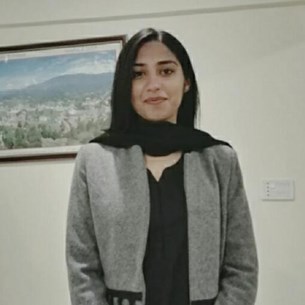Meeting
2024 ASCO Annual Meeting

Lifespan Cancer Institute/Brown University School of Medicine-Rhode Island Hospital, Providence, RI
Aleenah Mohsin , Mohammad Arfat Ganiyani , Shahzaib Ahmad , Vivek Podder , Rohan Garje
Background: Gallbladder neuroendocrine tumors (NETs) are exceedingly rare tumors and carry a poor prognosis. Racial/ethnic disparities and socioeconomic status have been known to influence cancer treatment and outcomes. This study explores racial/ethnic and socioeconomic disparities in treatment patterns of primary gallbladder NETs, focusing on factors affecting receipt of chemotherapy and multimodal therapy. Methods: We analyzed primary gallbladder NETs patients using the National Cancer Database (NCDB) from 2004 to 2020. Racial groups were divided into White and Black categories, and then those groups were further divided into Hispanic White, non-Hispanic White, Hispanic Black, and non-Hispanic Black categories according to ethnicity. We considered socioeconomic factors, tumor histology, and facility type. Logistic regression was used to determine the odds of receiving chemotherapy and multimodality therapy. The significance of disparities was determined using odds ratio (OR) and p-value. Results: Of 1,195 primary gallbladder NET patients, 59% (708 patients) underwent surgery. These patients had a median age of 65 years, with a female majority (64%) and predominantly White ethnicity (73.6%). Insurance coverage varied, with 48.9% having Medicare and 35.6% private insurance, while 3.9% were uninsured and 8.6% were covered by Medicaid. The study highlighted key factors affecting the receipt of surgery. Notably, racial disparities were apparent, with Black patients less likely to receive surgery compared to White patients (OR: 0.52; P < .001). Furthermore, patients with typical carcinoid tumors were markedly more likely to receive surgery than those with other histology (OR: 10.93; P < .001). The type of treatment facility was influential, with patients in Academic/Research Programs more likely to receive surgery (OR: 0.41; P < .001) than those in Community Cancer Programs. Conclusions: This study highlights racial and socioeconomic disparities in chemotherapy and multimodality therapy for gallbladder NETs, with Black, uninsured, and Medicaid-insured patients less likely to receive treatment. These findings call for targeted policy and healthcare reforms to ensure equitable access and outcomes for all patients with this condition.
| Characteristics | All Patients [n = 1195] | |
|---|---|---|
| Median age, years | 65 | |
| Sex | ||
| Female | 765 (64) | |
| Male | 430 (36) | |
| Race/Ethnicity | ||
| Non-Hispanic White | 727(68.9) | |
| Non-Hispanic Black | 210(19.9) | |
| Hispanic | 130(11.4) | |
| Asian | ||
| Insurance status | ||
| Private | 424(35.6) | |
| Medicare | 583(48.9) | |
| Medicaid | 102(8.6) | |
| Uninsured | 47(3.9) | |
| Income* | ||
| < $63,000 | 706(65.8) | |
| ≥$63,000 | 367(30.8) | |
| Educational Attainment | ||
| < 7% | 232(28.9) | |
| 7%-20% | 347(40.8) | |
| ≥21% | 242(32.2) | |
| Charlson-Deyo Score | ||
| 0 | 817(68.4) | |
| 1 | 252(21.1) | |
| ≥2 | 126(10.5) | |
| Tumor histology | ||
| Neuroendocrine carcinoma | 400(33.5) | |
| Small cell neuroendocrine carcinoma | 386(33.2) | |
| Large cell neuroendocrine carcinoma | 115(9.6) | |
| Typical carcinoid | 294(24.6) | |
| Median tumor size, mm | 107 | |
| AJCC stage | ||
| I | 15(1.2) | |
| II | 11(0.9) | |
| III | 93(7.8) | |
| IV | 335(28.1) | |
| Positive regional nodes | ||
| Yes | 192(61.5) | |
| No | 120(38.5) | |
| Tumor grades | ||
| 1 | 126(10.5) | |
| 2 | 21(1.8) | |
| 3 or undifferentiated | 383(32.0) | |
| Site of metastasis | ||
| Liver | 304(25.4) | |
| Bone | 37(3.0) | |
| Lung | 17(1.4) | |
| Brain | 8(0.6) | |
| Unspecified | 45(3.8) | |
Disclaimer
This material on this page is ©2024 American Society of Clinical Oncology, all rights reserved. Licensing available upon request. For more information, please contact licensing@asco.org
2024 ASCO Annual Meeting
Publication Only
Publication Only: Gastrointestinal Cancer—Gastroesophageal, Pancreatic, and Hepatobiliary
Gastrointestinal Cancer—Gastroesophageal, Pancreatic, and Hepatobiliary
Other GI Cancer
J Clin Oncol 42, 2024 (suppl 16; abstr e16385)
10.1200/JCO.2024.42.16_suppl.e16385
e16385
Abstract Disclosures
2023 ASCO Annual Meeting
First Author: Shivani Shah
2023 ASCO Annual Meeting
First Author: Jesica Freeman
2023 ASCO Annual Meeting
First Author: Jenna Bhimani
2023 ASCO Annual Meeting
First Author: Jian Wang